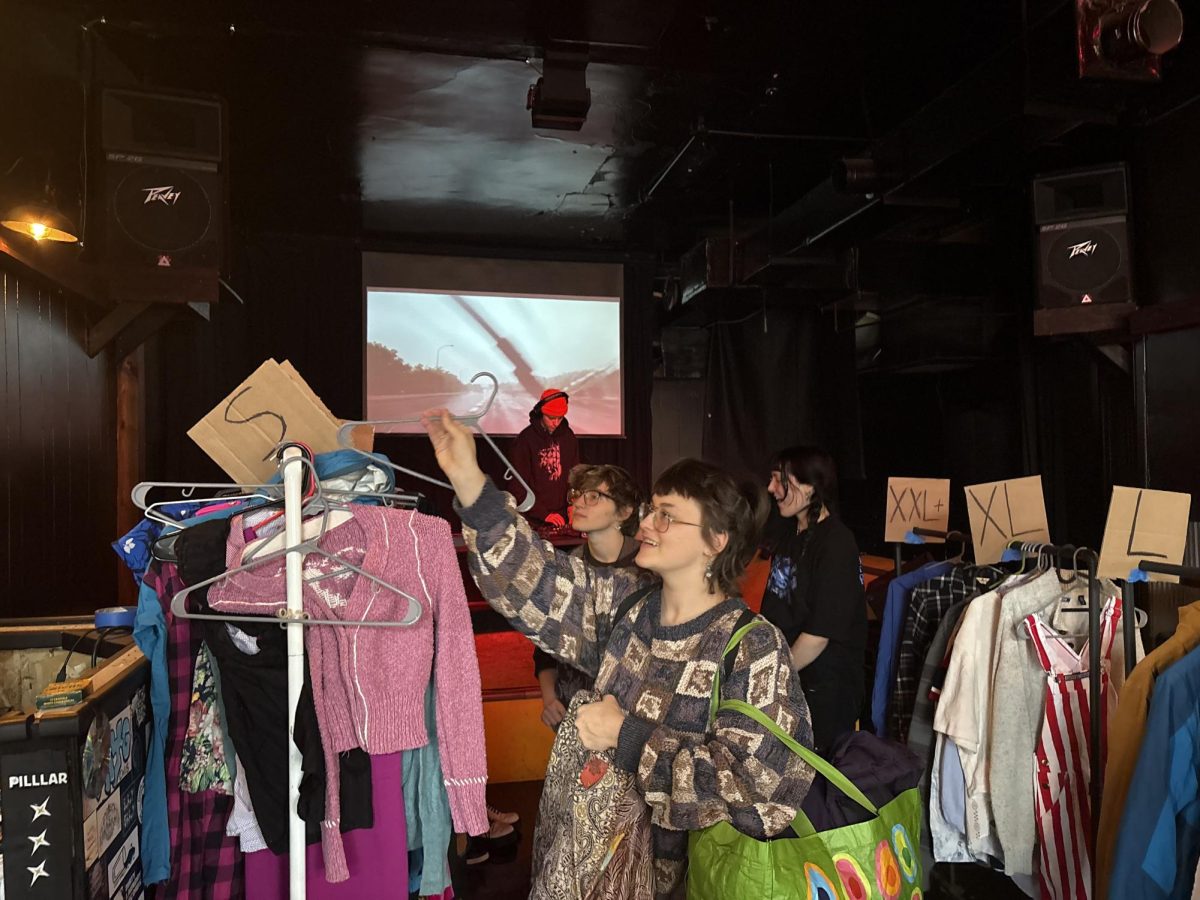Punk Rock Omaha is that rarity in theater: an improv-based play that is actually funny. Not just dry-chuckle-at-a-play-on-words funny either, but gnashing, hard-hitting, ironic funny that lampoons its subjects with precision and grace.
The play chronicles the ripple-effect produced by the break-up of a ludicrous Omaha punk band called “Supa Punk.” The fans are morose, the parents are despondent and the barflies think the world can be written off anytime. Punk Rock Omaha does not so much describe Omaha, its punk scene or actual fan culture as it erodes the pose of respectable Midwestern reserve to expose the pettiness and absurdity of empty consumerist lives.
All this erupts from the stage at the instigation of Joe Ferrari and Michael McSpeedy, the eponymous collaborators of Ferrari McSpeedy Theatrical Productions. Clad in matching shell suits and show logo baseball jerseys, the versatile duo oscillate between a dozen different characters, swiping their hands up and down in front of their faces with a quick “Zhwoop!” to indicate a new persona. Some of the characters are fairly over-the-top, most notably a lascivious female barfly who ends every sentence with a disquieting “Naaaaaaaaw.” However, Ferrari and McSpeedy distinguish themselves with their ability to shift suddenly between characters who bear a great deal of resemblance to each other while maintaining the individuality of each. (Other than removing their jackets at the beginning of the performance, the only costume changes consist of occasionally donning and removing eyeglasses.)
Throughout the play, Ferrari and McSpeedy tend to avoid cheap shots in favor of subtler and vastly more effective jibes. At the second remove from the trauma of Supa Punk’s breakup, McSpeedy plays the part of a despondent ‘zine editor, left hobby-less in the wake of the band’s dissolution. Ferrari is his stepfather, a motivational speaker who shares a name with a former Detroit Pistons coach, much to his chagrin. The son’s despair and the stepfather’s fumbling attempts to bond are the highpoint of the show. Though that trope has been a mainstay of family sitcoms from time immemorial (or at least since Leave It To Beaver) the performers subvert it masterfully. Despite being on the point of suicide, the son can’t resist digging into his stepfather’s deepest and silliest neuroses. Repeating “you’re not my real dad” might not ordinarily signify a comedic breakthrough, but McSpeedy’s delivery – insistent and puckish – demands that the audience collapse into spasms of laughter. Ferrari’s response is to be hurt and confused, but ultimately steadfast in his determination to motivate his stepson to embrace an ideology of positive-thinking.
Ultimately though, that determination fails and the stepfather spins into a cycle of depression and rage. It’s somewhat unfair to call this “black humor.” After all, no gallows looms, no knock-on-the-door comes in the middle of the night. Surely by this time the sort of people that Punk Rock Omaha targets for merciless taunting – car dealers and motivational speakers, the face of American duplicity – must be coming to terms with the utter pointlessness of their lives. Punk Rock Omaha is providing a valuable public service: a chance for the dregs of middle-class society to gaze into the abyss of their meaningless lives and dig the vacuum. And for the rest of us, it’s another chance to laugh at them.







